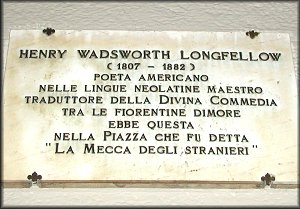
Per chi ama la poesia in lingua originale, segnalo LibriVox, un sito il cui sottotitolo dice tutto: acoustical liberation of books in the public domain.
LibriVox offre un vasto catalogo di letture di testi i cui diritti sono ormai scaduti. La maggior parte è in inglese perché sono loro ad avere questa bella tradizione del reading poetico. Ma non c’è solo poesia, anche romanzi, saggi e testi di tutti i tipi.
From LibriVox
Henry Wadsworth Longfellow – The Siege of Kazan – Read by: Peter Yearsley
Black are the moors before Kazan,
And their stagnant waters smell of blood:
I said in my heart, with horse and man,
I will swim across this shallow flood.

Under the feet of Argamack,
Like new moons were the shoes he bare,
Silken trappings hung on his back,
In a talisman on his neck, a prayer.
My warriors, thought I, are following me;
But when I looked behind, alas!
Not one of all the band could I see,
All had sunk in the black morass!
Where are our shallow fords? and where
The power of Kazan with its fourfold gates?
From the prison windows our maidens fair
Talk of us still through the iron grates.
We cannot hear them; for horse and man
Lie buried deep in the dark abyss!
Ah! the black day hath come down on Kazan!
Ah! was ever a grief like this?

 L’esperienza che vi propongo qui è sempre audio, ma è un po’ diversa dal solito.
L’esperienza che vi propongo qui è sempre audio, ma è un po’ diversa dal solito.